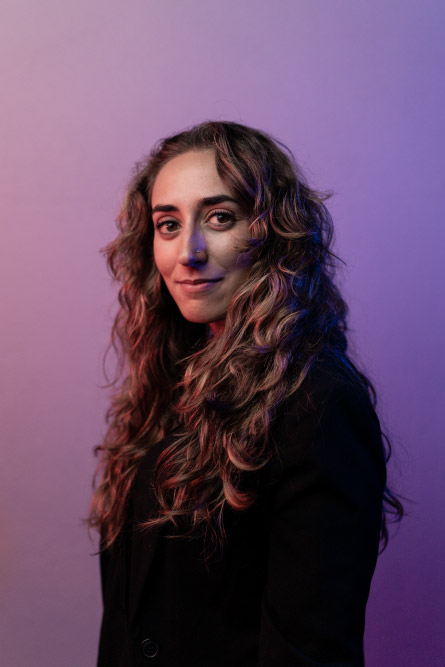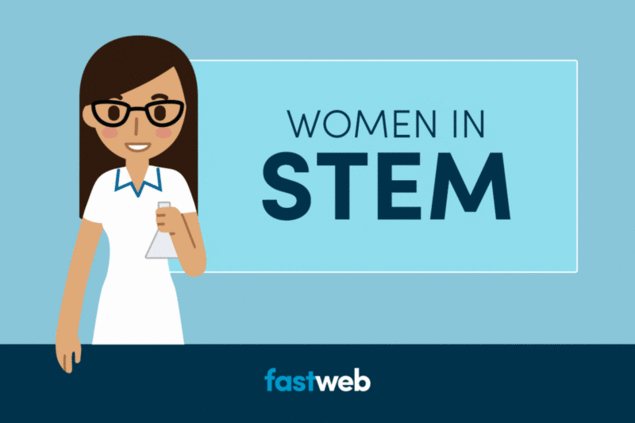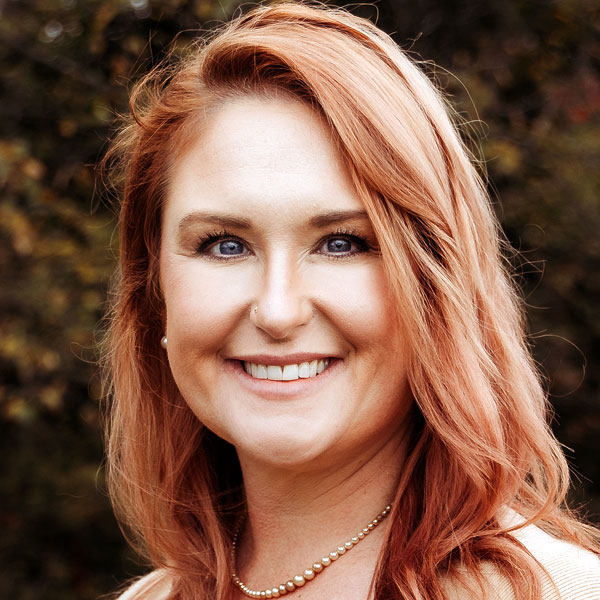We’re thrilled (and a bit starstruck ourselves) to introduce you to a
Betelgeuse obsessed, women’s health advocate and enthusiastic female scientist,
Sarafina Nance. Not only is Sarafina intelligent and compassionate, she’s a woman in the STEM field that’s full of grit. Her stellar personality shines through her down-to-Earth personality.
She’s just like us—Harry Potter fanatics and best friends of dogs unite!

Dual Bachelor of Science degrees in Physics and Astronomy from the
University of Texas-Austin, and completion of her Master's degree in Astronomy from the
University of California-Berkeley, Sarafina’s certainly breaking the Mesosphere (AKA shooting for the stars).
And as if she wasn’t Wonder Woman enough, her very own breast and ovarian cancer risks motivated her to do a very brave thing (read about this in question four). Sarafina is now a Ph.D. candidate in the
Astrophysics program at UC-Berkeley—You know, just studying massive stars and supernovae on supercomputers...
Sarafina is a spectacular female role model in the STEM field, read on to hear why.
1. When did your interest in STEM begin?
I’ve been fascinated by the night sky since I was 3- or 4-years old. I used to listen to NPR’s
Star Date radio on the way home from school every day, and distinctly remember asking my parents questions about the Universe, how we got here, and how the Universe would one day end. I spent nights looking at stars through binoculars with my dad and learning about stellar types and names of constellations. From that point on, I knew I wanted to study space. My place was amongst the stars.
2. Please share your educational background (college, major, degrees).
I have dual degrees (B.S.) in Physics and Astronomy Honors from the University of Texas at Austin. When I graduated college, I took a year off and subsequently started grad school at UC Berkeley, from which I hold an M.S. in Astronomy and am now a Ph.D. candidate.
3. Are there any other scholarships you earned or applied for throughout your undergraduate and graduate educational journeys? How did this help you?
I applied for travel/conference grants through the university in college that helped me attend workshops and conferences. During my first year of grad school I applied for and won the
NSF Graduate Research Fellowship, which funded 3 years of my graduate studies rather than rely on funds from an advisor or the school. This was hugely important; it’s allowed me the freedom to choose what I want to study and worry less about various associated costs of my work, like attending conferences and using supercomputer time.
4. Please tell me about any higher education obstacles you may have faced (I.e.: first-generation college student, funding, etc.).
One of the biggest challenges I face in STEM is imposter syndrome. Though intrinsically linked to the isolation and fear that comes with being an underrepresented minority in STEM, my imposter syndrome has morphed into a multi-faceted threat to my mental health and career. I consistently second guess my abilities as a physicist, and for a long time felt that I didn’t belong in science. Though this has dissipated somewhat as I’ve continued in my career and achieved career landmarks that I never thought I’d make (like getting my masters in astrophysics), it’s still something I’m actively fighting and working through.
5. Besides being a leading female scientist, what’s something else about you’d like for people to know about you?
I strive very hard to advocate for women’s health. I’m BRCA2+, gives me an 87% lifetime risk of breast cancer and 30% lifetime risk of ovarian cancer, as well as increased risks in other associated cancers like pancreatic and melanoma. As a result, I just had a
preventative double mastectomy to reduce my risk to less than that of the general population, around 5%. My goal is to show people how important it is to advocate for yourself and for your health, and to empower women in educating themselves about their health, genetic testing, and available options.
6. Did you have any internships as an undergraduate and/or graduate student? Please tell me about those. What did you learn from them?
My first summer in college I interned at the
McDonald Observatory, where I gave public talks and led star parties. This allowed me to hone my science communication skills and helped solidify what I love so much about space! My second summer I stayed at the University of Texas researching full-time with my advisor, which allowed me to improve my research skills and learn what it was like to do research full-time. My third summer I got an NSF-funded REU (Research Experience for Undergraduates) where I did research full-time at the Harvard Center for Astrophysics. This allowed me to network, develop my research skills, and learn from other amazing advisors what academia is really like. In grad school I’ve done research full-time during the summers (with some backpacking trips sprinkled in!).
7. What’s your favorite part about begin a scientist? What do you love the most about your job? What’s your least favorite part?
I get to spend all day everyday uncovering mysteries of the Universe! I LITERALLY couldn’t imagine a more incredible job.
My least favorite part is my
imposter syndrome and the toxicity of academia. Power structures inherent to academia make it very difficult for underrepresented minorities to have upward mobility and feel safe/secure. Job security is rare and difficult to attain, work-life balance is often extremely poor, and compensation in the field doesn’t accurately reflect the work we do. Unless you’re a tenured faculty member, you consistently have to navigate mine fields of prejudice, bias, and insecurity to continue on in academia. It’s a system set up to fail most of its members, which is a stunning failure of academia.
8. In layman’s terms please tell me about your current job as a Supernovae & Cosmology scientist. What’s a typical day like for you?
I log onto the
supercomputer and check how my code is running/how my jobs are doing. I spend a lot of time writing and debugging code and figuring out how to make it run better to extract better science. I spend part of the day looking on the
Arxiv to check if any new supernovae papers came out, or to review other parts of the literature. I run simulations, analyze spectral data from my observing runs at the telescope, and set up targets for the next observing run. I also spend time writing up my work in a paper to be submitted for publication and put together talks. I sit in on talks, discuss my work and other research with fellow astronomers, and spend a lot of time on
Twitter doing science communication!
9. Please tell me about your study of the super-giant star, Betelgeuse. What does it mean for humankind? What can we/have you learned from it? Where can we go to stay up to date on the latest Betelgeuse happenings?
Betelgeuse is so fascinating because we can see it from Earth and see the changes happening on the surface of the star in real time. Most astronomical phenomena are so far away that we have to use powerful telescopes to study and understand them, with precise data reduction techniques and image visualization. With
Betelgeuse, we can actually see the dimming going on right now with the naked eye! It’s incredible!
Though humankind won’t be adversely affected by its explosion whenever that happens, we will get to see it as bright as the moon for a few months and then fade in our sky. We’re still trying to predict when it will explode as a supernova, but we don’t think that’ll happen for the next 100,000 years. It’s recent dimming is amazing because we get to study incredible physics (like convective cells and violent mass ejection)! All massive stars undergo episodic mass loss near the ends of their lives, but Betelgeuse is close enough that we get to actually see it happening.
To stay up to date, Twitter is a great place. There are a couple of Betelgeuse specific accounts, as well as a few astronomers who tweet about it often (
Miguel Montargès,
Andy Howell,
Craig Wheeler, and
Emily Levesque are all great accounts).
10. In a recent Instagram post you mentioned that as a kid you didn’t look up to a single woman in science; not because you didn’t desire to, just because women in science wasn’t a topic revealed to you as a young girl...Today, who is/was your most influential STEM role model? Why?
I have so many! I really look up to other young Ph.D astronomers. There are some amazing young women doing incredible science and being amazingly kind and brilliant people. Sophia Gad Nasr, Rose D Ferreira, Rebecca Larson, Hannalore Gerling-Dunsmore, Moiya McTier, Dreia Carillo, and Taylor Hutchinson are all women who come to mind. I also really admire Emily Calendrelli, Dianna Cowern, and Natalie Panek, amazing science communicators and brilliant women!
I also really look up to my high school astrophysics teacher, Frank Mikan. He encouraged my love for space despite not being inherently good at math or science. His love for space ignited my own passion and his support over the years has completely changed my life.
11. Why does the world need more women scientists?
Because we’re passionate, capable, smart, forward thinking, and driven. We’re OUT HERE doing amazing work, and we should be valued as such.
12. Looking back, what would you tell yourself as a high school senior and/or college senior?
That I’m capable. If someone tells you that you’re not, don’t listen to them and just keep going, because you ARE!
13. Say a young female is pursuing a STEM career. What advice would you give her?
Allow your passion to drive you and to pull you through the difficult times. When things get hard, remember why you’re doing what you’re doing. That grade doesn’t matter, that test doesn’t matter, that final doesn’t matter—what does matter is your love for what you do. You’re capable no matter what anyone tells you. Keep pushing.
14. From your perspective, how does our nation get more women into STEM fields?
In my opinion, the primary problem isn’t necessarily getting
women into STEM. There are so many young girls interested in and fascinated by STEM! The problem is keeping us in STEM, by creating safe and supportive atmospheres that encourage learning in a judgment-free way. This problem is only exacerbated by issues of race and class.
I absolutely think we need to show women that they belong. One part of the solution could be exposing young women to female scientists who are just like them. Showing young women that scientists and engineers look just like them allows young women to visualize themselves in that role.
We also need to compensate women appropriately in STEM. This transcends fiscal compensation and includes things like career pathways and life balance in order to accurately reflect the many different roles that women take on throughout their lives.
Teaching women to advocate for themselves and speak up is hugely important, but it only works if we actively dismantle the gender bias that prohibits us from speaking up in the first place. That means making safer workplace environments, valuing diversity and inclusion trainings, and educating folks on inherent power imbalances and brainstorming how to change them.
15. Are there any STEM causes/organizations you’re passionate about? Please share.
I’m hugely passionate about the group Unique Scientists, who embrace diversity in STEM and highlight the journeys of scientists all around the world. They do amazing work in making science accessible and changing the narrative of what scientists look like. I’m also in awe of Dr. Jess Wade’s Wikipedia work-- she writes and publishes Wikipedia articles for women in science.
16. What’s one thing that fascinates you about the Cosmos? What gives you goosebumps/concerns you?
It’s vastness. I get an immense amount of relief and perspective when I remember that our problems, our fears, our pain is but a small speck in the Universe.
I think the thing that makes me saddest is that we’re only scratching the surface of knowledge about the Universe—there is so much more to learn, and it will take Millenia to understand it all. To be fair, though, I also think that’s magical.
17. Tell me about an inspirational piece you may have read/watched/listened to. What was it and why did it touch you?
I recently read
Samantha Power’s memoir “The Education of an Idealist”. While I may not fully agree with her foreign policy, I was absolutely in awe of her life story, the work she did in Bosnia and as a junior war correspondent, and ultimately her work as the Ambassador to the UN under President Obama. It was incredible to read about someone so honestly communicating their proudest moments and their biggest failures in a vulnerable, genuine way. I loved learning about how she balanced her family while also leading our country’s foreign policy. Her life work stunned me.
18. What do female scientists do in their free time?
I spend as much time as I can outdoors -- I backpack, ski, read, play with my dog, work out, and hang out with my friends.
19. Just for fun, if you were stranded on an island alone what are three items you must have and why?
“Harry Potter and The Prisoner of Azkaban” (my favorite book), my dog (he keeps me sane), and a telescope (to see the stars!)
20. You get to meet three people from the past: Who are they and what’s the one question you’d ask each?
I’m always terrible with this question. I’d want to meet
Carl Sagan purely so I can learn as much about science communication and the Universe as I possibly could. Though not the past, I’d also love to meet Malala Yousafzai and Greta Thunberg.
21. What’s one not-so-science life lesson studying the stars has taught you?
Perspective. I’ve learned to put my own problems in perspective, realizing that they are miniscule in the scope of the Universe. This has helped me manage my anxiety and overall be a happier, more present human being.
22. I must ask: Are we Earthlings alone?
I don’t know for sure, but if I were to wager a guess, I’d say that I certainly don’t think so! There’s too much out there that we have yet to explore and understand.
23. What’s your favorite constellation and why?
My favorite constellation is
Orion because it houses my favorite star, Betelgeuse! Once Betelgeuse explodes, Orion will be left without a right shoulder, which is a really incredible prospect.
You can follow Sarafina on
Twitter or
Instagram!
Are you (or do you know) a female pursing a STEM career? Create a Fastweb account today, and check out this
College Scholarships:2020 Edition article!
 Dual Bachelor of Science degrees in Physics and Astronomy from the University of Texas-Austin, and completion of her Master's degree in Astronomy from the University of California-Berkeley, Sarafina’s certainly breaking the Mesosphere (AKA shooting for the stars).
And as if she wasn’t Wonder Woman enough, her very own breast and ovarian cancer risks motivated her to do a very brave thing (read about this in question four). Sarafina is now a Ph.D. candidate in the Astrophysics program at UC-Berkeley—You know, just studying massive stars and supernovae on supercomputers...
Sarafina is a spectacular female role model in the STEM field, read on to hear why.
Dual Bachelor of Science degrees in Physics and Astronomy from the University of Texas-Austin, and completion of her Master's degree in Astronomy from the University of California-Berkeley, Sarafina’s certainly breaking the Mesosphere (AKA shooting for the stars).
And as if she wasn’t Wonder Woman enough, her very own breast and ovarian cancer risks motivated her to do a very brave thing (read about this in question four). Sarafina is now a Ph.D. candidate in the Astrophysics program at UC-Berkeley—You know, just studying massive stars and supernovae on supercomputers...
Sarafina is a spectacular female role model in the STEM field, read on to hear why.
 Dual Bachelor of Science degrees in Physics and Astronomy from the University of Texas-Austin, and completion of her Master's degree in Astronomy from the University of California-Berkeley, Sarafina’s certainly breaking the Mesosphere (AKA shooting for the stars).
Dual Bachelor of Science degrees in Physics and Astronomy from the University of Texas-Austin, and completion of her Master's degree in Astronomy from the University of California-Berkeley, Sarafina’s certainly breaking the Mesosphere (AKA shooting for the stars).

